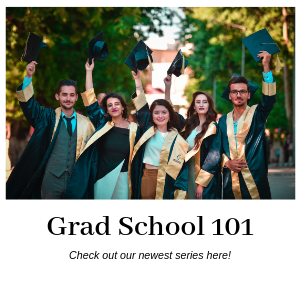'In computer and software engineering, the financial outlook for PhDs is excellent'
 |
A delegation from the Arizona State University’s Ira A. Fulton Schools of Engineering recently visited India to meet and recruit Indian students. One of the members of the delegation was Assistant Professor in Engineering at The Polytechnic School at ASU – Dr. Sohum Sohoni.
He spoke to BrainGain Magazine about moving to the US as an international student, the financial outlook for PhD students, and skills an engineer today must possess.
Edited excerpts from the conversation are below:
-
You completed your bachelor’s in electrical engineering from Pune. What prompted your move to study in the US?
I believe that my decision was heavily influenced by my peers. When I was a student at the College of Engineering, Pune, most of my fellow students and friends were thinking about going abroad for graduate education, particularly to the US.
With the internet in its nascent stages, most of the information was word of mouth, and my peer network played a strong role in everything, from picking out the institutions to which I should apply, to when to take the GRE, and how to prepare for my visa interview.
I was lucky to have had such a wonderful group of friends, who have had a great influence on my life.
-
Your visit to India was part of the Ira A. Fulton Schools of Engineering’s recruitment drive. What are your observations on a student’s concerns today? How are they different from when you were exploring international education?
While information is readily available on the internet and through various social media groups, there is still a need for vetting this information and personalizing it. In our trip, we have encountered some of the same concerns that my friends and I faced when we were preparing to go abroad. These typically include questions about housing, financial aid, weather, and employment.
The ways that the questions are different are in the detail and the maturity of the queries. Back in 1997, when I was preparing my applications, my questions were broad, since I had very little information already available. Now, with so much information at our fingertips, students ask questions that are much more specific. There is also a focus on employment opportunities after graduation, which was not something I had thought about too much when I was approaching my graduate studies.
-
Research is made possible through funding. How optimistic is the financial outlook for international PhD students in the US?
Most PhD students are supported either through Teaching Assistantships or Research Assistantships. Faculty are expected to spend a considerable amount of their working hours writing research proposals and collaborating with other faculty on bringing in large research grants. A majority of the budget in these proposals is for funding PhD students, in terms of competitive stipends as well as tuitions waivers. Since mentoring PhD students and enabling their success is central to the faculty’s and University’s success in terms of research reputation, the funding for PhD students will always be a high priority, as it allows them to focus on their research.
As for the financial outlook after graduation, it depends a lot on the major/discipline. In my field, computer engineering and software engineering, the financial outlook for PhDs is excellent, because PhDs are not only employed in academia, but a large number make it to the research departments at Intel, Microsoft, Google and other well-reputed tech companies.
-
What are the soft skills which you think are indispensable to an engineer today?
Communication would be at the top of my list. This includes written communication, but also verbal and non-verbal communication, like body language. Whether it is sending an email to one’s manager or engaging in a conversation with a client to understand the customer requirements, communication skills are extremely important. This includes listening and asking clarifying questions, and doing so in a manner that does not intimidate others.
-
3 things you wish you knew before you traveled to the US as a student.
Keep an open mind, learn to prioritize, and stay focused on the longer term.
There will be many opportunities that come your way, so it is important to keep an open mind. However, that needs to be balanced with what’s important, so learning to prioritize is key, as it will allow you to focus and make important decisions for longer-term success. As a young person living independently, perhaps for the first time, there is much self-discipline and time-management that is needed to successfully negotiate this new lifestyle. Part of the experiencing studying abroad is to grow as a person.
And you should learn how to cook!
Interested in finding out more about ASU and/or engineering abroad? We’ve got more information at just a click away!
'Have a 5-year vision for where you want to be'
The best way to know if a university is right for you – tips from expert Holly Singh
4 Questions With Dr. Panchanathan of Arizona State University














